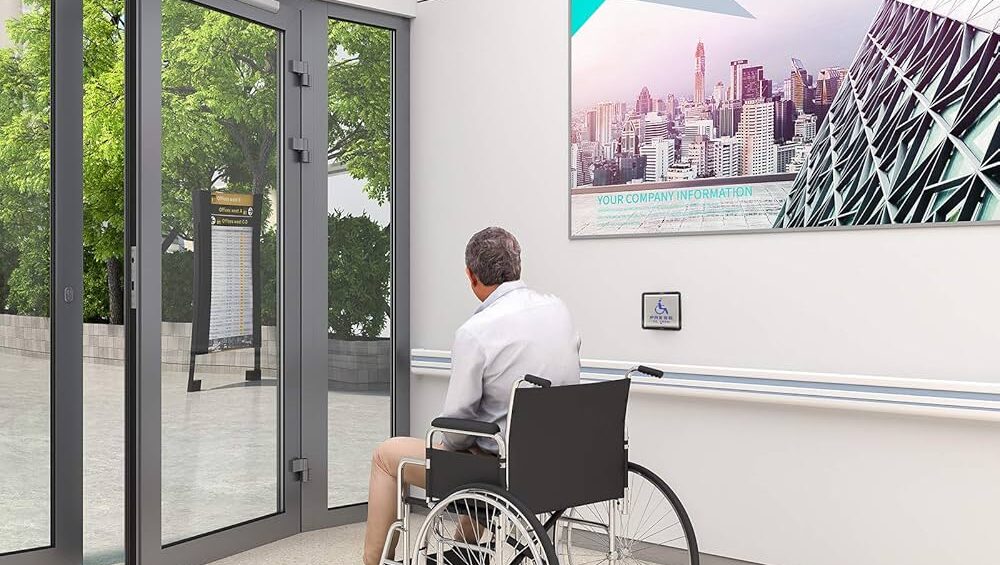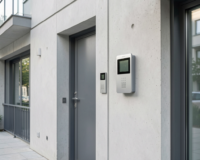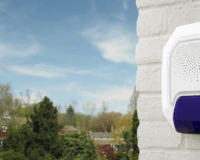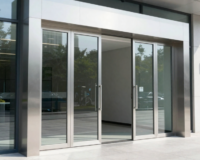NDIS-compliant automatic swing doors are transforming the way people with disabilities move through their homes and clinical spaces in Australia. These doors provide a seamless, hands-free experience that prioritises independence, safety, and accessibility. Whether you’re a participant of the National Disability Insurance Scheme (NDIS), a caregiver, a homebuilder, or a healthcare provider, installing automatic swing doors designed to meet Australian accessibility standards is a proactive investment in freedom and function.
In this guide, we’ll explore the top benefits of installing NDIS-compliant automatic swing doors in residential and clinical settings, the technical standards to meet, and how to choose the right solution for your needs. You’ll also learn how these systems align with NDIS funding objectives and support the goal of enabling independent living for Australians living with disability.
What Are NDIS-Compliant Automatic Swing Doors?
An NDIS-compliant automatic swing door is a motorised door that opens and closes without manual input, typically activated by sensors, remote controls, push pads, or mobile devices. To be considered compliant under the NDIS or the Disability Discrimination Act (DDA), these doors must meet Australian Standards, especially AS 1428.1, which governs design for access and mobility.
Automatic swing doors are hinged on one side and swing inward or outward, making them ideal for:
- Internal room access (bedrooms, bathrooms, kitchens)
- Main entrances and exits
- Hallways or transition spaces
- Clinics or small medical offices
They are particularly useful in areas where sliding or revolving doors may not be practical.
Why Are Automatic Swing Doors Important in the NDIS Context?
The NDIS aims to support Australians with permanent and significant disabilities by funding services that promote independence and community participation. Automatic swing doors support this objective by:
- Enabling independent access to rooms and buildings
- Reducing the need for assistance
- Enhancing safety and security in personal and clinical environments
- Aligning with home modification and assistive technology funding categories
Whether installed in Specialist Disability Accommodation (SDA), Supported Independent Living (SIL) homes, or private dwellings, these doors are increasingly recognised as essential accessibility tools.
What Are the Main Benefits of NDIS-Compliant Automatic Swing Doors?
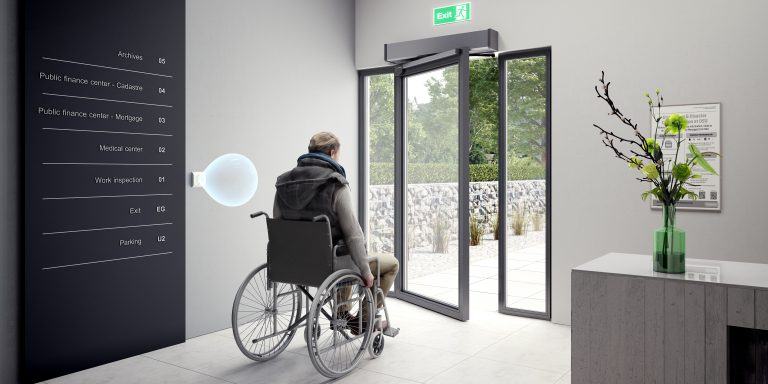
1. Improved Accessibility and Independence
Automatic swing doors allow individuals with mobility challenges to open and close doors without physical effort. This is especially important for wheelchair users, elderly individuals, or those with motor impairments.
Hands-free operation can be achieved through:
- Push-to-open pads
- Motion sensors
- Wireless remotes or smartphone apps
- Voice activation in some advanced systems
This promotes autonomy within the home and eliminates one of the common physical barriers in daily living.
2. Support for Carers and Family Members
These doors reduce the burden on carers by allowing individuals to move independently through their environment. For example, if a person needs access to the bathroom while a carer is occupied, they can open the door on their own.
This reduces strain on carers and encourages a more dignified lifestyle for the person receiving care.
3. Compliance with Australian Accessibility Standards
NDIS-compliant swing doors meet key design principles outlined in:
- AS 1428.1 – Design for Access and Mobility
- The Disability Discrimination Act (DDA)
- Livable Housing Design Guidelines
These standards cover:
- Door width and clearance
- Minimum force for opening
- Delayed closing times
- Safety sensors and anti-pinch features
Compliance ensures the installation is not only functional but also legally and ethically sound.
4. Safe and Controlled Operation
Modern swing door systems offer soft open/close functions, obstacle detection, and emergency manual override. These features prevent injuries and ensure safe operation in both residential and clinical settings.
Additional options like battery backup systems maintain functionality during power outages, while secure locking systems improve safety for users with cognitive impairments.
5. Greater Privacy and Dignity
In private residences or shared disability housing, users can operate doors to their rooms or bathrooms without assistance, preserving dignity and reducing dependence.
Clinics also benefit from enhanced patient privacy. Automated doors can close softly and completely after a patient enters an exam room or therapy space.
6. Integration with Smart Home or Assistive Tech
Automatic swing doors can integrate with:
- Voice assistants like Google Home or Alexa
- Mobile apps for door control
- Smart access cards or fobs
- Centralised home automation systems
This makes them a valuable part of the broader ecosystem of assistive technology supported under the NDIS.
7. Easy Retrofitting in Existing Homes or Clinics
Many systems are designed for retrofit applications and can be installed with minimal structural modification. Door automation kits can be added to existing hinged doors using wireless technology and low-voltage wiring.
This flexibility makes them ideal for:
- Older homes undergoing NDIS-funded modifications
- Clinics needing accessibility upgrades without major renovations
8. Improved Infection Control in Clinical Settings
In medical offices or therapy rooms, automatic doors reduce contact with handles and surfaces—important for infection control. This benefit became especially evident during the COVID-19 pandemic and remains a key driver for installation in healthcare environments.
Are These Doors Covered by NDIS Funding?
Yes, automatic swing doors can be funded through NDIS plans when they are deemed reasonable and necessary. They typically fall under:
- Assistive Technology (AT) category
- Home Modifications category
To obtain funding:
- A participant must include the need in their NDIS plan.
- An occupational therapist or allied health professional must assess the participant’s needs and provide a supporting report.
- A quote from an NDIS-registered installer or supplier must be submitted.
Once approved, the cost of supply and installation is covered under the participant’s plan.
Key Features to Look for When Choosing a System
Not all swing doors are created equal. When selecting an NDIS-compliant solution, consider:
- Motor strength and smoothness for quiet, low-resistance operation
- Sensor type – motion, push pad, or remote
- Delay timers and opening angle – to suit specific mobility needs
- Anti-pinch technology and soft close features
- Manual override and battery backup
- Compliance with AS 1428.1 and DDA
Also check if the system has been tested under AS 5007 (automatic pedestrian doors) to ensure safety and durability.
Where Are These Doors Most Commonly Installed?
In Homes:
- Bedroom doors
- Bathrooms and ensuite entries
- Front entry doors
- Kitchen transitions
- Internal doors between main living zones
In Clinics:
- Consultation rooms
- Waiting areas and staff rooms
- Accessible bathrooms
- Entry points and corridors
Common Misconceptions About Automatic Swing Doors
“They’re too expensive for the average NDIS participant.”
Many systems are affordable and fall within NDIS home modification budgets. Long-term savings on carer time and increased independence justify the investment.
“They’re too complex to install in older homes.”
Most systems are designed for retrofitting and can be installed with minor adjustments. Portable or wireless options are also available.
“They consume too much power.”
Low-voltage motors and standby modes make modern systems energy efficient. Many are designed to run on standard 10A circuits.
NDIS Solutions by Digital Home Systems

Digital Home Systems is dedicated to providing a comprehensive range of home automation solutions specifically crafted to meet the needs of NDIS participants. Our innovative technologies are designed to enhance accessibility, safety, and independence, ensuring a seamless and empowering living experience for individuals with disabilities.
Here’s a glimpse into the range of home automation solutions we offer:
- Automatic Door Openers
- Automatic Gate Openers
- Automated Lighting and Power Control
- Automated Climate Control
- Automated Window Fittings
- Emergency Call System
- Video Intercoms
- CCTV and Access Control
- Smart Sensors and Pressure Pads
BOOK A FREE CONSULTATION to explore tailored solutions that fit your lifestyle and NDIS plan requirements.
Final Thoughts: Why Now Is the Time to Upgrade
Installing NDIS-compliant automatic swing doors is a smart, future-focused decision for any Australian home or clinic aiming to support people with disability. These systems do more than open doors—they open possibilities. They foster independence, reduce reliance on carers, ensure safety, and align with Australia’s growing commitment to inclusive design.
Whether you’re a participant, provider, builder, or facility manager, embracing this technology today means a more accessible tomorrow.

